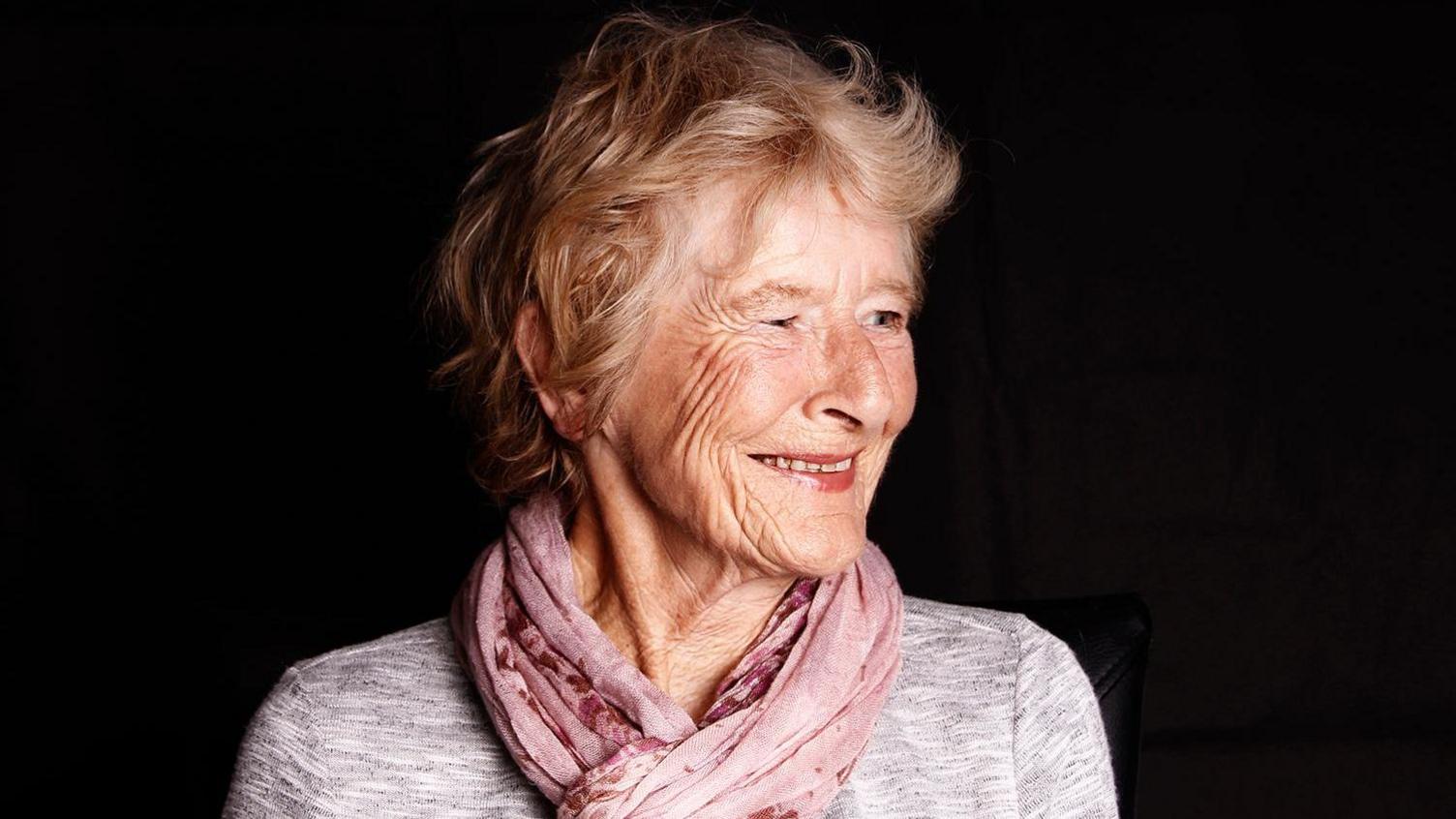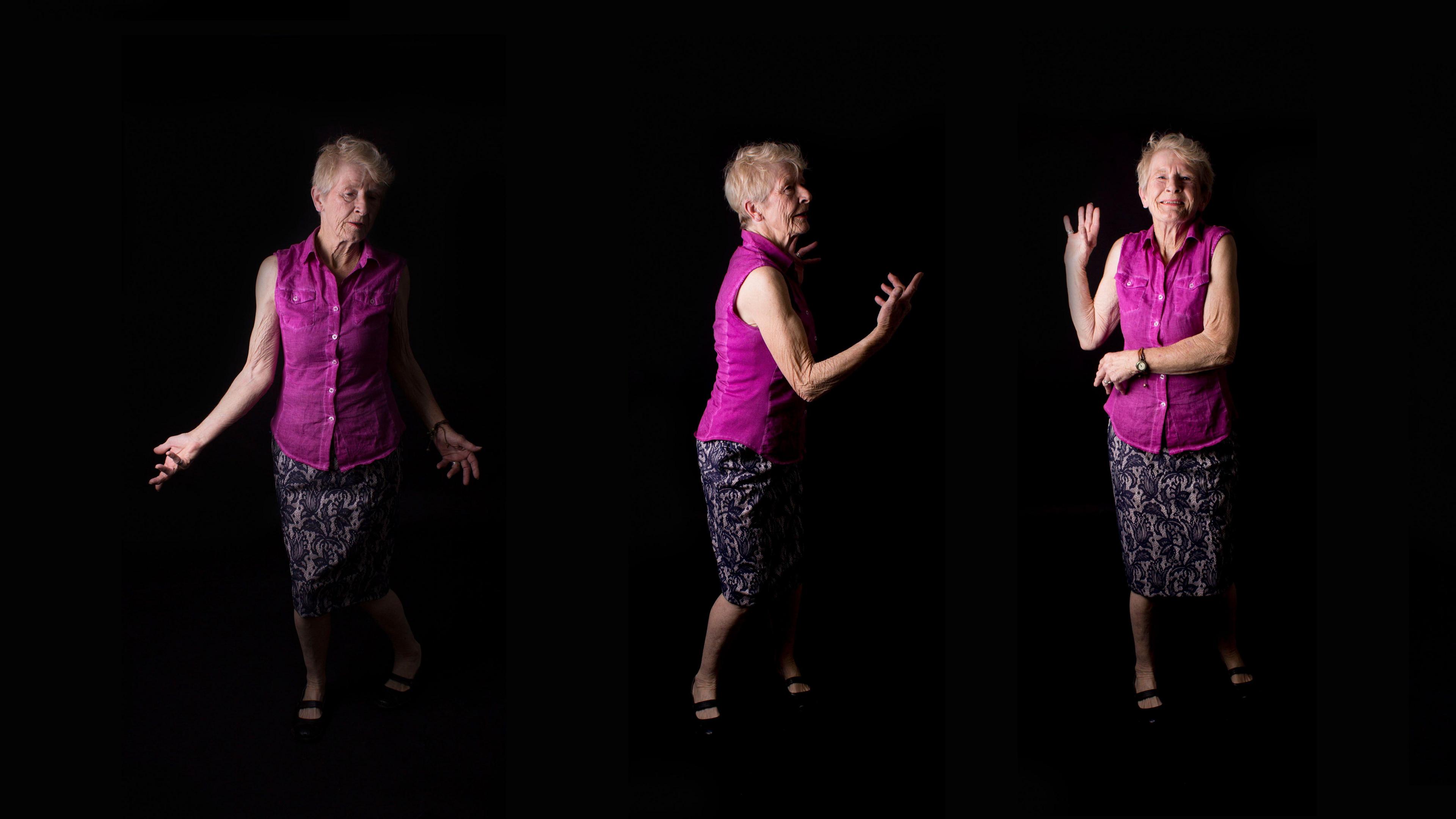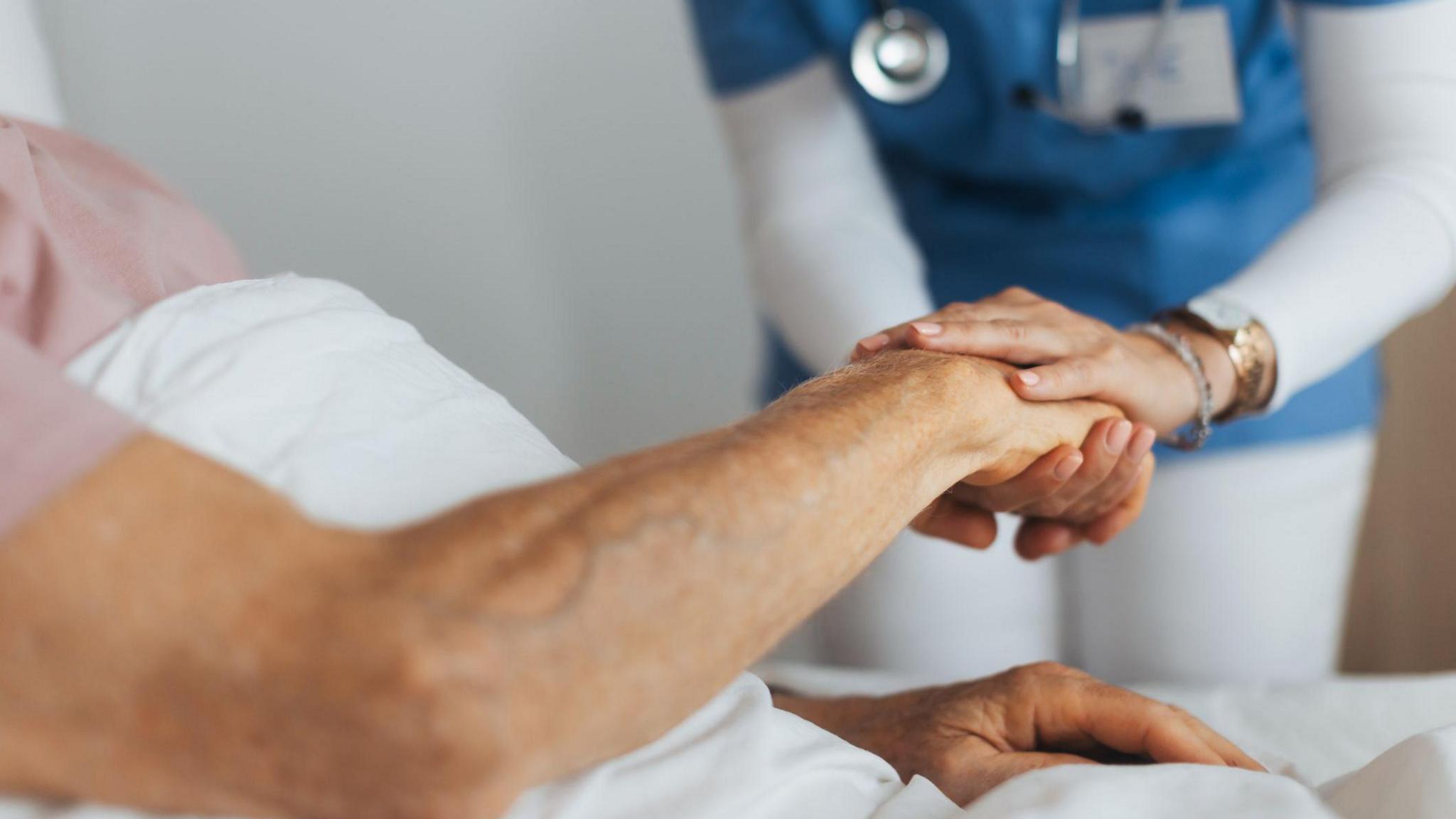'We felt on our own looking after mum in her last days'

Joan's three daughters say the administration around her care at home meant they lost precious time with her
- Published
Managing her mother's pain, plus arranging items such as a wheelchair and commode, meant Ceridwen Hughes was not able to say a proper goodbye.
Talking about her mum Joan's last weeks in Mold, Flintshire, she said the family were "on our own" in looking after her.
Despite 43 calls for assistance, a doctor visited just once, meaning precious last moments were spent as carers.
End-of-life charity Marie Curie spoke to more than 1,000 family members, including 557 in Wales, finding many took on tasks they lacked knowledge for, and struggled to get professional help when acting as carers.
It has called on ministers to develop a plan for providing more help.
“Good palliative care can make a huge difference to the quality of life for those with life-limiting illness, helping them to die with dignity, and facilitates a healthy grieving process for those left behind," said a Welsh government spokesperson.
“That is why we continue to provide over £12.5m every year to ensure people in Wales have access to the best possible end of life care and support."
We need to normalise death and dying, says carer
- Published6 May 2024
How home nurses helped ease my husband's last days
- Published1 July 2022
'What terminal cancer has taught me about life'
- Published27 January 2024
“From the very beginning it was disjointed. We had no idea where to go for anything," Ms Hughes said.
"We didn't know where to get a commode or a wheelchair. We were absolutely on our own, even from the very beginning.
"If we couldn't negotiate trying to get the most basic things in place, for when she was dying, how could anybody who was perhaps less able?"
Joan, was a “party animal" who was belly-dancing at her 80th birthday party, according to her daughter.
One year later, in 2020, she was diagnosed with cancer and died within three weeks.
Ms Hughes and her two sisters, one of whom is a nurse, cared for their mother at home.
“We were three capable women who thought ‘well, of course we can care for her’,” she said.
But she said they were not prepared for how difficult it would be - with the biggest issues pain management and trying to make their mother comfortable.
District nurses were not able to change the pain medication, and the family spent a lot of time trying to get their mother supported by a palliative care team.
“Mum knew her body, she knew that it didn't work. We weren't listened to. So we weren't part of the decision-making process when it came to the care for her. We didn't have the support that we needed," she said.
“Not only did we feel like we were on our own, but what was worse was that we felt that mum was going through on her own as well."

Joan was a "party animal" who was not able to have a proper goodbye, says her daughter
As Joan died in just three weeks, Ms Hughes said their precious time was taken up by admin that would have been solved with communication with the organisations involved.
“We couldn't have any last minute conversations with her. We couldn't say goodbye to her, because all they did was give her more and more Midazolam to make her more knocked out because the pain," she said.
“Relief wasn't working, so rather than change the pain, relief, or referrals to palliative care, they just kept giving her more and more sedative.
“In the space of 24 hours my sister made 43 calls to try and get help, and nobody was able to help us.
“We had no last minute conversations, and even before mum was completely unconscious, she told my sister that she wanted to talk to her, and my sister couldn't sit down and talk to her because she was on the phone constantly, trying to get somebody to help with pain relief.
“So the difficulties for us were multiple."
She added: “I think what would have made a big difference is to have somebody that we could talk to from the very beginning that could talk us through the different steps, who could tell us where to get the right information, but also to be there on the end of the phone when we needed them."

Marie Curie's latest research found many families felt ill-equipped to deal with the care of a loved one
Marie Curie's latest research also found one in nine (11%) of people in Wales who died in hospital had been there less than 24 hours, which they said shows a lack of proper care available to those close to death in their homes.
It also found almost half (47%) of those asked in Wales, were unhappy with at least one aspect of the care their family member received.
One in 15 made a formal complaint.
Most respondents undertook essential caregiving roles, but many felt they lacked the knowledge, skills, and access to professional support needed, often having to take time off work.
The Welsh government spokesperson added: "The National Programme for Palliative and End of Life Care, external is driving forward improvements such as setting national standards for care, boosting community-based services, supporting the training and development of the care workforce and improving bereavement care so families and individuals receive the support they need when they lose a loved one.
“We are also committed to ensuring that unpaid carers can access the support they need and have provided additional funding to support unpaid carers when the cared for person is admitted to, or discharged from, hospital.”